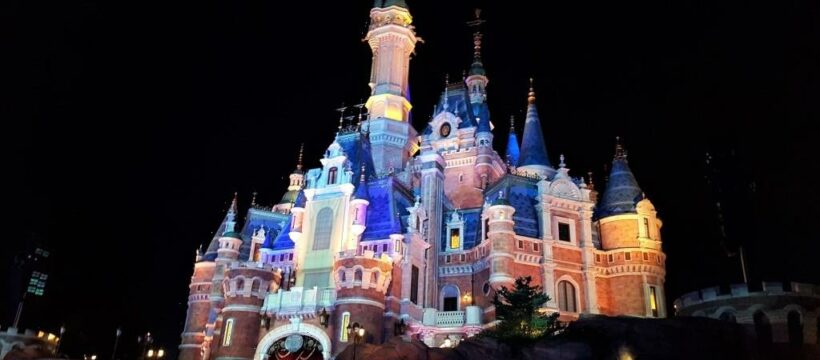Some cinemas in central Shanghai were closed from Friday in reaction to a surge in coronavirus cases in the city and other parts of China. The Shanghai Disneyland theme park announced partial restrictions that take effect from Saturday.
On Saturday, Chinese authorities announced that a total of 1,649 new cases in the country had been discovered on Friday. (These broke down as 476 local infections that showed symptoms and 1,173 asymptomatic cases. Of the new cases, 112 were imported.) It was the second consecutive day that the total exceeded the thousand case landmark.
The numbers are minuscule compared with some countries and territories overseas, but they are the highest that China has experienced for nearly two years. They reflect the impact of the milder, but more infectious, omicron variant of the COVID-19 disease.
Authorities said that most cases were found in Shandong and Jilin provinces in the country’s Northeast. But a growing number in Shanghai, China’s commercial capital and one of the country’s largest cities, is a cause for concern. The National Health Commission said Saturday that Shanghai recorded five imported cases on Friday.
City authorities said that Shanghai schools will be closed from Saturday and must switch to online teaching instead of normal classes. Dozens of housing and office compounds in the city where confirmed cases and their close contacts had visited have been told to undergo up to 14-day quarantines. Parks, libraries and cinemas have been ordered to close in the city’s Xuhui and Jingan districts.
Shanghai Disneyland Resort, which was shuttered during the disease’s first wave, said Friday that it will operate at reduced capacity and suspend live theater shows. It will step up guest and staff control measures at the park and its two affiliated hotels. From Saturday, guests must present a negative nucleic acid test (such as a PCR test) taken within 24 hours in order to enter the resort.
In November last year, the park dramatically closed its doors for more than a day after a single visitor was found to have tested positive upon returning home. The sudden closure trapped hundreds of staff and visitors inside the complex until everyone could be tested.
China is operating a zero-COVID policy which entails largely closed borders, mass vaccination and localized lockdowns. Mainland China has reported 112,000 infections since the beginning of the outbreak in January 2020 and 4,635 deaths. Some 1.24 billion people have received at least one vaccination shot.
A largely similar policy has gone badly wrong in Hong Kong, one of China’s two special administrative regions, where new daily infections are currently in the tens of thousands and health authorities are close to being overwhelmed. The Hong Kong Disneyland theme park has been closed since early January 2022, when the omicron wave hit the city.
Source: Read Full Article
